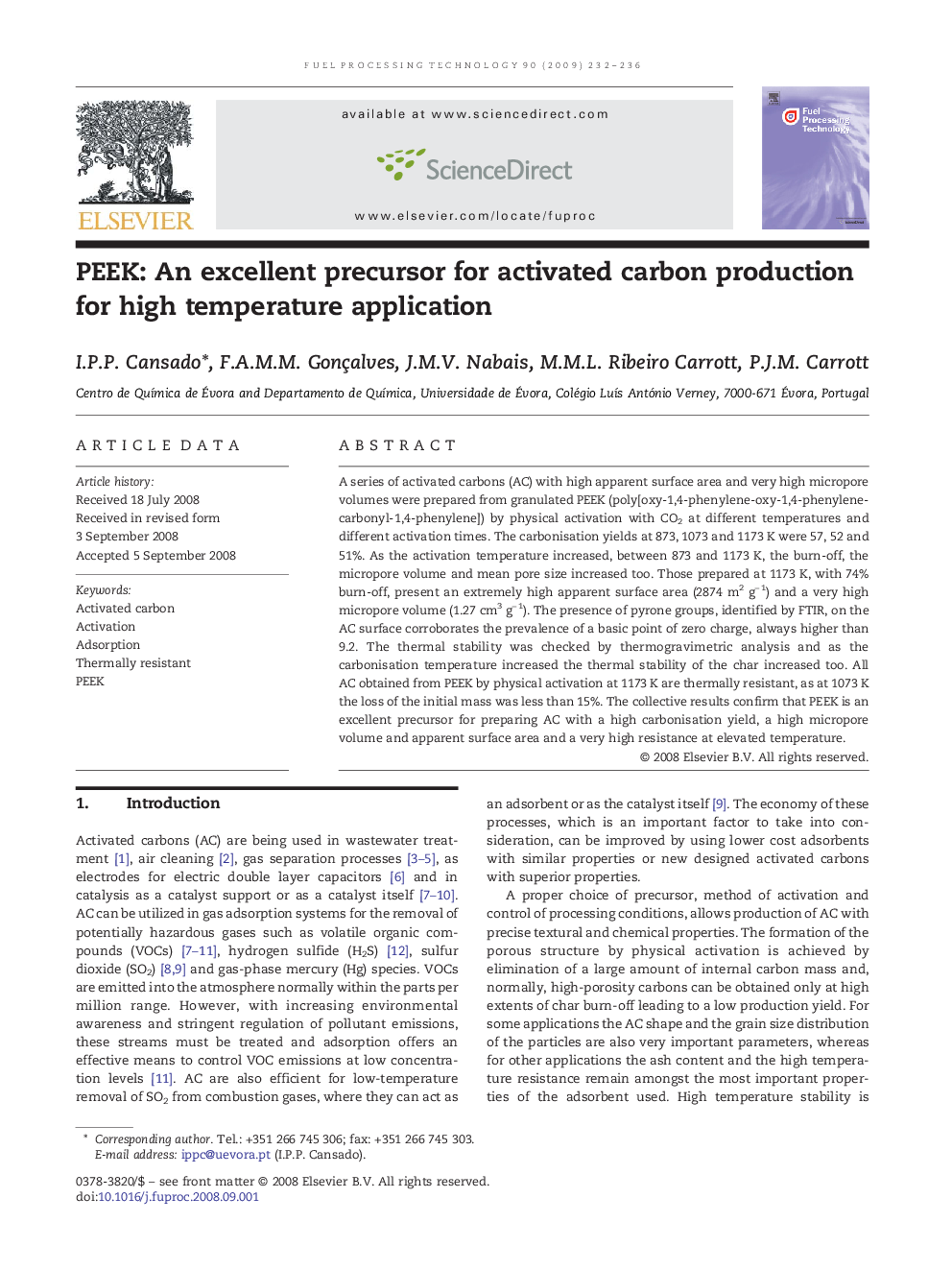| Article ID | Journal | Published Year | Pages | File Type |
|---|---|---|---|---|
| 211331 | Fuel Processing Technology | 2009 | 5 Pages |
A series of activated carbons (AC) with high apparent surface area and very high micropore volumes were prepared from granulated PEEK (poly[oxy-1,4-phenylene-oxy-1,4-phenylene-carbonyl-1,4-phenylene]) by physical activation with CO2 at different temperatures and different activation times. The carbonisation yields at 873, 1073 and 1173 K were 57, 52 and 51%. As the activation temperature increased, between 873 and 1173 K, the burn-off, the micropore volume and mean pore size increased too. Those prepared at 1173 K, with 74% burn-off, present an extremely high apparent surface area (2874 m2 g− 1) and a very high micropore volume (1.27 cm3 g− 1). The presence of pyrone groups, identified by FTIR, on the AC surface corroborates the prevalence of a basic point of zero charge, always higher than 9.2. The thermal stability was checked by thermogravimetric analysis and as the carbonisation temperature increased the thermal stability of the char increased too. All AC obtained from PEEK by physical activation at 1173 K are thermally resistant, as at 1073 K the loss of the initial mass was less than 15%. The collective results confirm that PEEK is an excellent precursor for preparing AC with a high carbonisation yield, a high micropore volume and apparent surface area and a very high resistance at elevated temperature.
